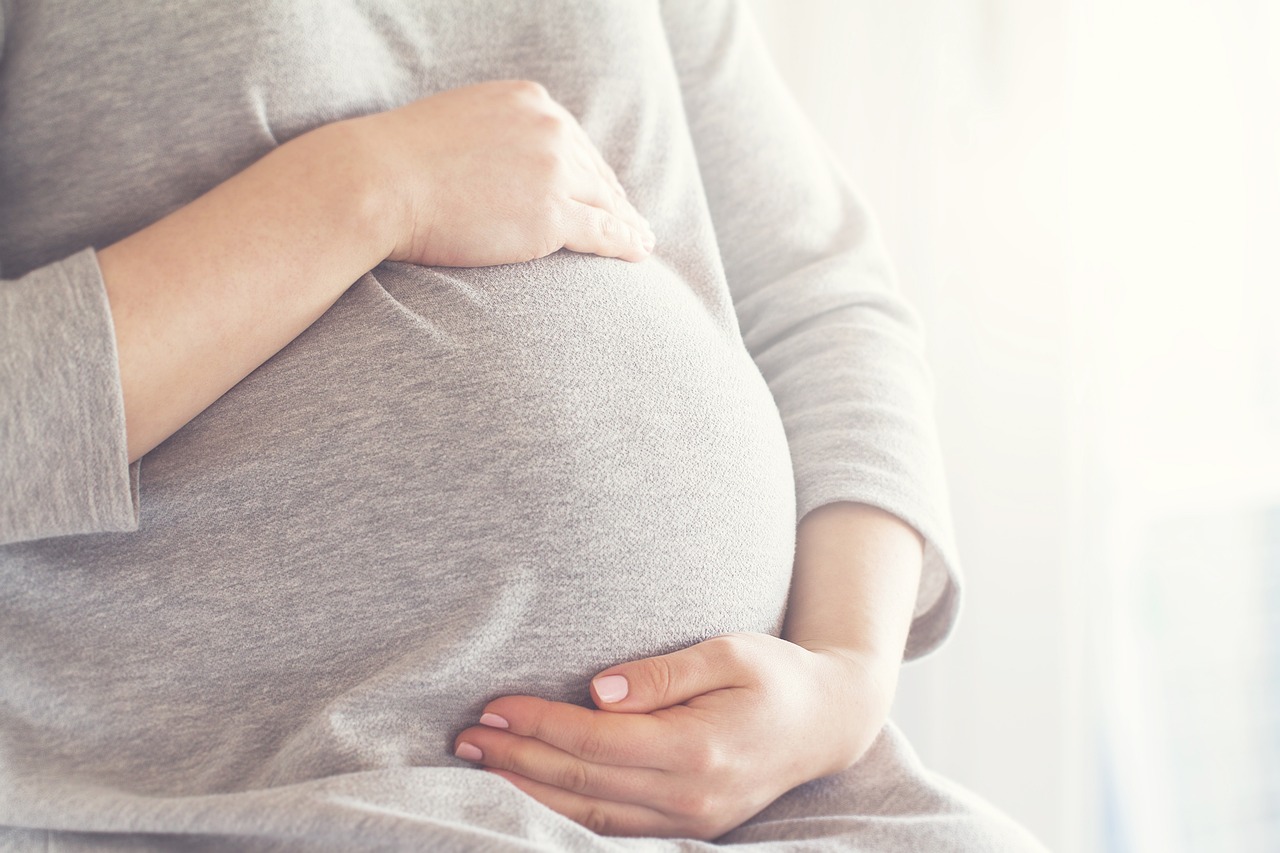

The study was the first of its kind to involve pregnant women in Brazil (photo: fezailc/Pixabay)
The study was conducted at the University of São Paulo. As the pregnant women were treated and their symptoms of depression improved, the proportion of “good” bacteria in their gut microbiome increased.
The study was conducted at the University of São Paulo. As the pregnant women were treated and their symptoms of depression improved, the proportion of “good” bacteria in their gut microbiome increased.

The study was the first of its kind to involve pregnant women in Brazil (photo: fezailc/Pixabay)
By Maria Fernanda Ziegler | Agência FAPESP – The profound changes undergone by a woman’s body during pregnancy affect her metabolism and gut microbiota – the diverse community of microorganisms (bacteria, archaea, fungi and viruses) that inhabit the digestive tract. A study involving 34 Brazilian pregnant women found that certain alterations in the gut microbiota are associated with different intensities of depressive symptoms. An article on the research project is published in the Brazilian Journal of Psychiatry.
In the study, which was conducted by researchers affiliated with the University of São Paulo (USP) in Brazil and supported by FAPESP, pregnant women with more intense symptoms of depression had larger quantities of enterobacteria, many of which are responsible for infections and inflammation, as well as modulating key neurotransmitters that affect the central nervous system. When these women were referred to psychiatric treatment and their symptoms of depression improved, their gut microbiota accompanied this psychic evolution by containing more bifidobacteria – healthy bacteria that help digest fiber and prevent infections, among other things.
“Depression is a taboo subject, especially when it occurs during pregnancy, but the fact is that it’s a disease, and we observed that the gut microbiota responds to this process. The gut microbiota exhibits a different composition in pregnant women with and without depressive symptoms. Moreover, it changes during psychiatric treatment, as does assessment of the symptoms,” said Carla Taddei, last author of the article. She is a professor at the Biomedical Sciences Institute (ICB-USP) and a research fellow at the School of Pharmaceutical Sciences (FCF-USP).
The study, which was conducted by PhD candidate Amanda Mota, first author of the article, is the first of its kind to involve pregnant women in Brazil. The findings are similar to those of previous research conducted in other countries on the relationship between mental illness and gut microbiota.
The article reports the initial results of a wider project that will investigate the role of gut microbiota in diseases specific to the gestational period, such as preeclampsia. “Very few studies have been conducted in Brazil on the connection between gut microbiota and complications during pregnancy, yet identification of these parameters and monitoring the mental health of pregnant women are extremely important,” Taddei said.
“For example, some women suffer from postpartum depression – as many as 20% according to current estimates – and they may well have had depressive symptoms during pregnancy. Health workers should pay closer attention to depression during pregnancy and help reduce the incidence of postpartum depression, which involves the baby, major hormonal alterations, pressure to breastfeed, stress, physical fatigue – a great many factors that worsen the condition of women who have depressive tendencies.”
Antenatal care
The volunteers who took part in the study were in the third trimester of pregnancy and attending the university hospital (HU-USP) for antenatal care. The Edinburgh Postnatal Depression Scale was used as a screening tool to divide the participants into two groups: one without depressive symptoms or with only mild symptoms; and the other with moderate to severe symptoms. Maternal stool samples were collected for microbiota analysis on three occasions: in the third trimester, a day or two after the baby was born, and a month after that.
“Some participants were healthy, diagnosed as low-risk during antenatal care, and eligible for the control group in our study, yet were severely depressed according to their score on the Edinburgh scale. Analyzing the gut microbiota of all pregnant women isn’t on the cards, of course, and would have no therapeutic basis for now. Nevertheless, our findings made us wonder whether it might not be a good idea to include a mental health assessment using the Edinburgh scale as part of standard antenatal care,” Taddei said.
Psychiatric care during pregnancy and the puerperium is recommended, although the recommendation is not often followed, she added. “It’s all very undernotified, but some studies estimate that between 31% and 50% of women with anxiety and depression are diagnosed during this period. Only 14% of these receive adequate treatment, and only 3% exhibit remission,” she said.
Maternal health problems can affect fetal neurodevelopment, and lead to premature or underweight and undernourished babies. The link between gut microbiota and gestational depression was expected, she added, and the study showed that it may be a two-way street in the sense that each factor influences the other.
“The gut-brain axis involves two-way communication, for example,” she said. “Previous research showed that the mother’s mental health affects the baby’s microbiota, suggesting a connection between the gut-brain axis and the composition of the newborn’s microbiota.”
The article “Longitudinal gut microbiota composition during perinatal period in women with different intensities of depressive symptoms” is at: pubmed.ncbi.nlm.nih.gov/39305521/.
Republish
The Agency FAPESP licenses news via Creative Commons (CC-BY-NC-ND) so that they can be republished free of charge and in a simple way by other digital or printed vehicles. Agência FAPESP must be credited as the source of the content being republished and the name of the reporter (if any) must be attributed. Using the HMTL button below allows compliance with these rules, detailed in Digital Republishing Policy FAPESP.





